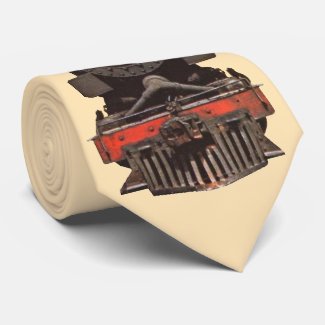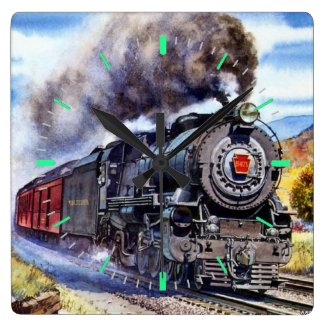Plenge's Farm
Today is a perfect, beautiful day in August. There is bright sun, warm but not hot, a refreshing breeze and the smell of good, rich earth rising from the ground. Farm life in Belleville can be grand. What's that you say ... there is no farm life in Belleville ? Ah, well then, you are just not old enough to have grown up here during the wonder years when there was open space everywhere and the Plenge farm was one of the major landmarks in our town. If you were here, you most likely remember the Plenge Farm roadside vegetable stand on Franklin Avenue at the corner of Joralemon Street or, if you are a child of the early '50's as I am, you may remember it as O'Boyles Milk Bar, a favorite hangout after a Saturday afternoon football game. It is likely that you or your parents bought your fresh vegetables at the roadside stand or, if you preferred shopping at the A & P, which was supplied by the farm, you were still feasting on Plenge's fresh produce. There was no eating of limp stuff shipped in, less than fresh, from remote parts of the world. We ate what grew right here and it was fresh picked and it was wholesome, grown by a master farmer. Oh ! ... the flavor of home grown.
The farm was where today we find the Rutan Estates. Modern-day Plenge Drive goes through the heart of the farm. It ran from Third River along Joralemon Street to the Bloomfield line and back from Joralemon Street to the Nutley line with additional acreage at the intersection of Franklin Avenue and Joralemon Street where the roadside stand stood (Valley National Bank occupies the spot where the vegetable stand once was.) In all, the family's land plus various rented tracts, the farm was 72 acres.
It was in 1908 when August and Caroline Plenge bought farmland in Belleville. August Plenge was an experienced farmer who had been working a tract of land in Elmhurst, Long Island. Urban sprawl around New York City was making it more and more difficult to maintain farming operations in or near Elmhurst so the Plenge family began searching for quality farmland "out in the country". Their search brought them to our town. There was still rich farmland here in town west of Franklin Avenue.
The Rutan family, who had lived in Belleville since the Village of Second River days, long before the Revolutionary War, still maintained a farm in the Third River area between Joralemon Street and the Nutley border. Although the Rutan's used the farm for orchards and the raising of cows, chickens and pigs, August Plenge, a vegetable farmer, saw in it exactly what he needed. The soil was a rich mixture of loam and sand, gently sloping hills facing the best light for growing, an adjacent dairy farm in next-door Nutley to provide ample supplies of manure to ensure bountiful crops and the old Lobster Mill Pond on Third River to provide irrigation. Belleville proved to be excellent farmland as it always had. The Plenge family, August, Caroline and their first three children moved in. The farm had cost $10,000, a huge amount of money in 1908, but Mr. Plenge was confident that he could harvest wealth from the land and he was right many times over.
By 1923, the farm was thriving and the Plenge family was complete now with nine children. The youngest, Robert Plenge was born in this year. It is he, the youngest of the Plenge children, now at age 85, who has written a book about the farm and family in which we who value our town's history, are very much interested (see details below.)
A workday on the farm was most commonly from sunrise to sunset. In addition to the older children who were able to help, there were usually seven or so hired hands who lived at the farm. At dawn, breakfast was served to all in the Plenge kitchen. Caroline Plenge, arguably the hardest worker of all, was known to maintain a meticulous kitchen and dining room while serving her large family and the farm's workforce as well. Any successful farmer will tell you that it cannot be done without an equally successful house manager. After breakfast it was off to the fields.
In 1936, in the midst of the Great Depression, with financial pressures coming from every direction, several members of the large Plenge family constructed the roadside vegetable stand that many of us came to know so well as the most visible part of the Plenge farm. It is ironic that today, just a few hundred yards away, there is a very popular farmer's market. History does indeed repeat itself.
1938 saw a change of remarkable importance. The familiar sight of horse-drawn plows tilling the land gave way to the sight of a Ford tractor ! Business improved quickly and, at least on the Plenge farm, the depression was over.
1942 was a year that shook the foundations of the old farmstead. In August, in a front page headline story in the Belleville Times, the town was informed that August Plenge had died of a heart attack. A sad day indeed it was for the town as well as the family. It was noted in the news that Mr. Plenge had been a popular philanthropist who had benefited many town charities. Mother Plenge had died the previous year. The elder sons took over the operations of the farm.
By the mid '50's the town was changing. Developers were hungry for still more land on which to ply their trade. The town had raised the taxes on the farm. In 1957, under the same pressures of urban sprawl that had caused August Plenge to leave Elmhurst back in 1908, the last crop was harvested. The farm was sold. The beautiful old farmstead would become a housing development. For the first time since the founding of our village in the 17th century, there would be no farming in Belleville.
==> ==>
This past week, your author here present had the extraordinary good fortune of making the acquaintance of Mr. Robert Plenge, youngest of August Plenge's children. At age 85, he appears to be in better health than most of us. Mr. Plenge, a very pleasant man by nature, was kind enough to patiently answer my many questions about the farm. The occasion of the meeting was the presentation by Mr. Plenge of copies of his new book to the Belleville Public Library and Information Center. Mr. Plenge's book, The Pictures in the Trunk, is a must-read for all who are interested in our town's history. I don't see how anyone can read this book and not come away with the feeling that every member of the Plenge family has become a personal friend of the reader. It is an elegant portrait of what family life was like at that time as well as the experience of growing-up in Belleville. It is a complete history of the farm. I enjoyed it thoroughly. I recommend it to everyone. The book, filled with color photos of the farm in addition to many antique black and whites and sepia tones, gives the older reader a marvelous, nostalgic look at Belleville's past and the younger reader a peek at what once was. Copies of the book are available for $49.95 directly from Mr. Plenge. He can be contacted, by eMail, at lukeplenge@comcast.net.
==> ==>
A special 'Thank You" is in order to Eleanor Strollo of our town, a friend of the Plenge family, who was instrumental in arranging the interview that has led to this article. The photos of the farm in the slide show above are the property of Mr. Plenge and are used here with permission.
The farm was where today we find the Rutan Estates. Modern-day Plenge Drive goes through the heart of the farm. It ran from Third River along Joralemon Street to the Bloomfield line and back from Joralemon Street to the Nutley line with additional acreage at the intersection of Franklin Avenue and Joralemon Street where the roadside stand stood (Valley National Bank occupies the spot where the vegetable stand once was.) In all, the family's land plus various rented tracts, the farm was 72 acres.
It was in 1908 when August and Caroline Plenge bought farmland in Belleville. August Plenge was an experienced farmer who had been working a tract of land in Elmhurst, Long Island. Urban sprawl around New York City was making it more and more difficult to maintain farming operations in or near Elmhurst so the Plenge family began searching for quality farmland "out in the country". Their search brought them to our town. There was still rich farmland here in town west of Franklin Avenue.
The Rutan family, who had lived in Belleville since the Village of Second River days, long before the Revolutionary War, still maintained a farm in the Third River area between Joralemon Street and the Nutley border. Although the Rutan's used the farm for orchards and the raising of cows, chickens and pigs, August Plenge, a vegetable farmer, saw in it exactly what he needed. The soil was a rich mixture of loam and sand, gently sloping hills facing the best light for growing, an adjacent dairy farm in next-door Nutley to provide ample supplies of manure to ensure bountiful crops and the old Lobster Mill Pond on Third River to provide irrigation. Belleville proved to be excellent farmland as it always had. The Plenge family, August, Caroline and their first three children moved in. The farm had cost $10,000, a huge amount of money in 1908, but Mr. Plenge was confident that he could harvest wealth from the land and he was right many times over.
By 1923, the farm was thriving and the Plenge family was complete now with nine children. The youngest, Robert Plenge was born in this year. It is he, the youngest of the Plenge children, now at age 85, who has written a book about the farm and family in which we who value our town's history, are very much interested (see details below.)
A workday on the farm was most commonly from sunrise to sunset. In addition to the older children who were able to help, there were usually seven or so hired hands who lived at the farm. At dawn, breakfast was served to all in the Plenge kitchen. Caroline Plenge, arguably the hardest worker of all, was known to maintain a meticulous kitchen and dining room while serving her large family and the farm's workforce as well. Any successful farmer will tell you that it cannot be done without an equally successful house manager. After breakfast it was off to the fields.
In 1936, in the midst of the Great Depression, with financial pressures coming from every direction, several members of the large Plenge family constructed the roadside vegetable stand that many of us came to know so well as the most visible part of the Plenge farm. It is ironic that today, just a few hundred yards away, there is a very popular farmer's market. History does indeed repeat itself.
1938 saw a change of remarkable importance. The familiar sight of horse-drawn plows tilling the land gave way to the sight of a Ford tractor ! Business improved quickly and, at least on the Plenge farm, the depression was over.
1942 was a year that shook the foundations of the old farmstead. In August, in a front page headline story in the Belleville Times, the town was informed that August Plenge had died of a heart attack. A sad day indeed it was for the town as well as the family. It was noted in the news that Mr. Plenge had been a popular philanthropist who had benefited many town charities. Mother Plenge had died the previous year. The elder sons took over the operations of the farm.
By the mid '50's the town was changing. Developers were hungry for still more land on which to ply their trade. The town had raised the taxes on the farm. In 1957, under the same pressures of urban sprawl that had caused August Plenge to leave Elmhurst back in 1908, the last crop was harvested. The farm was sold. The beautiful old farmstead would become a housing development. For the first time since the founding of our village in the 17th century, there would be no farming in Belleville.
==> ==>
This past week, your author here present had the extraordinary good fortune of making the acquaintance of Mr. Robert Plenge, youngest of August Plenge's children. At age 85, he appears to be in better health than most of us. Mr. Plenge, a very pleasant man by nature, was kind enough to patiently answer my many questions about the farm. The occasion of the meeting was the presentation by Mr. Plenge of copies of his new book to the Belleville Public Library and Information Center. Mr. Plenge's book, The Pictures in the Trunk, is a must-read for all who are interested in our town's history. I don't see how anyone can read this book and not come away with the feeling that every member of the Plenge family has become a personal friend of the reader. It is an elegant portrait of what family life was like at that time as well as the experience of growing-up in Belleville. It is a complete history of the farm. I enjoyed it thoroughly. I recommend it to everyone. The book, filled with color photos of the farm in addition to many antique black and whites and sepia tones, gives the older reader a marvelous, nostalgic look at Belleville's past and the younger reader a peek at what once was. Copies of the book are available for $49.95 directly from Mr. Plenge. He can be contacted, by eMail, at lukeplenge@comcast.net.
==> ==>
A special 'Thank You" is in order to Eleanor Strollo of our town, a friend of the Plenge family, who was instrumental in arranging the interview that has led to this article. The photos of the farm in the slide show above are the property of Mr. Plenge and are used here with permission.
+































